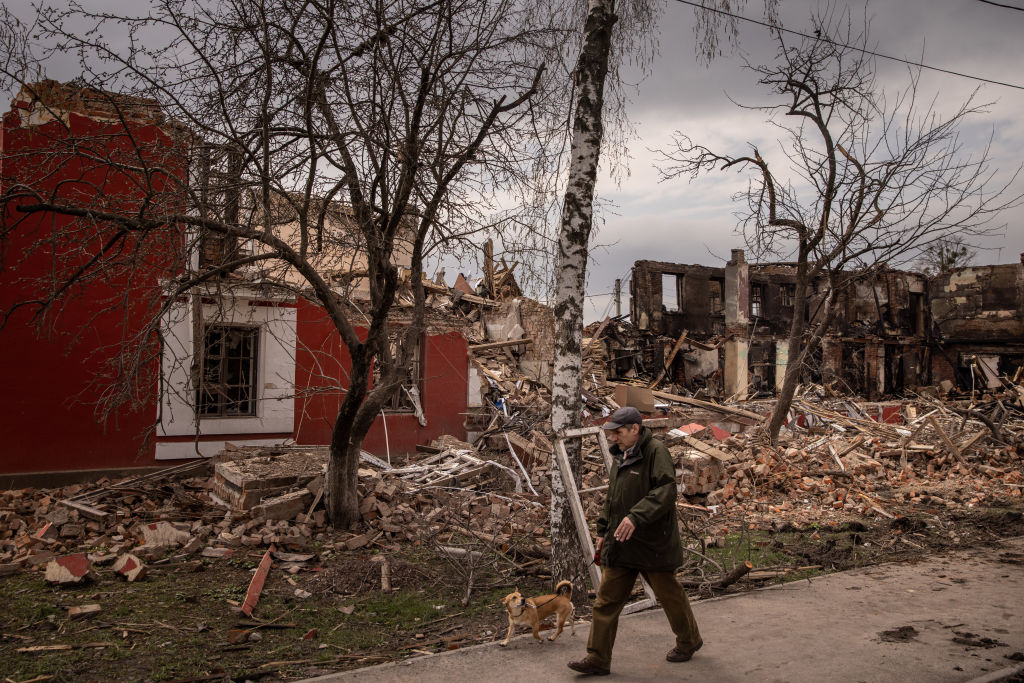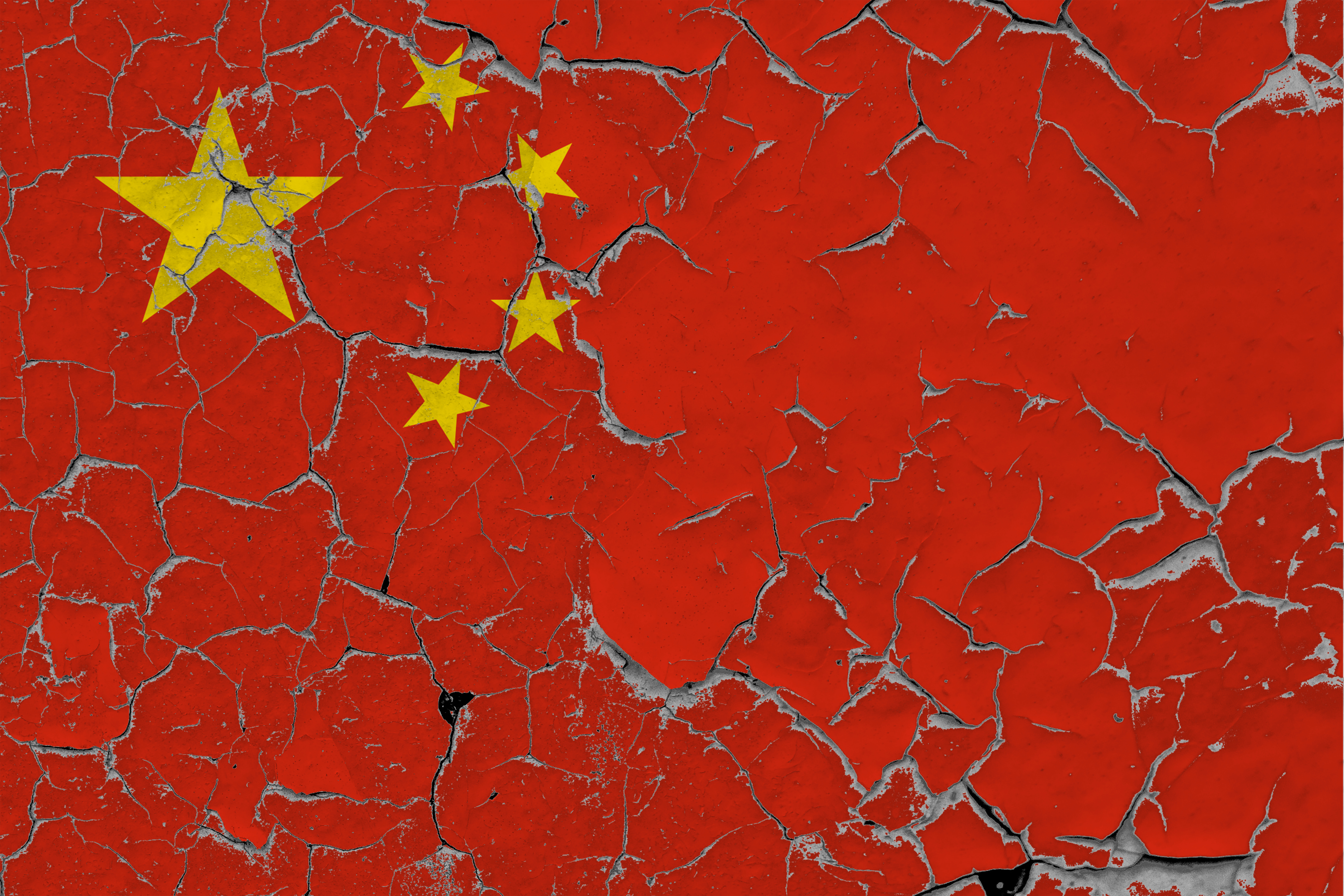The 2020 election won’t be over on Election Day.
Their Rubble, Their Problem

Our foreign policy is in shambles, but it remains in our national interest for Ukraine to prevail.
American foreign policy in the post-Cold War, post-neoconservative hangover, post-Afghanistan fiasco era appears to be in total disarray. And the problem is further complicated by the profound distrust Americans have in their institutions, their national security elite, and President Biden and his team’s capacity and honesty.
It’s not hard to understand why. In the short span of 30 years, we went from being the king of the Soviet-less unipolar world to a hollow, decrepit empire, uncertain of our role. Vigorous foreign interventions in Somalia, the former Yugoslavia, Iraq, Afghanistan, Libya, Syria, among others, expended thousands of American lives and trillions of dollars to no apparent lasting effect, except, perhaps, to forge new enemies in the aftermath of drone strikes on family gatherings. At the same time, our national security clerisy, supposedly above partisan politics, gave us rubes the fake Russian dossier, Crossfire Hurricane, Mueller, and the fantastical claim that evidence of the Biden family’s corruption on Hunter’s laptop was—wait for it—Russian dezinformatsia.
In short, Americans look at their leaders and find them sorely wanting.
The dearly missed Angelo Codevilla diagnosed this institutional rot long ago. “Hard times force regimes, as they force individuals, to prove what they are made of,” he cautioned in a 2011 Claremont Review of Books essay on America’s “Lost Decade” of foreign policy.
There’s no lack of hard times today. Casting our eyes abroad, we can clearly see that in the opening stages of Russia’s invasion of Ukraine, the Ukrainian polity is providing a better account of itself than its Russian enemy. A broader verdict on the West is muddled by Ukraine’s battlefield valor and ingenuity, contrasted with Russia’s brutish incompetence.
Returning to Codevilla:
Most often, wars are won and lost by a faction of a diverse ruling class. Victories validate the winners and what they stand for. Defeats usher in competitors waiting in the wings…
When, however, the losers are a whole ruling class, and when that class is pervasive enough to have banished to society’s margins any people and ideas that diverge from it, its discredit really does put society in a revolutionary situation…
America’s current ruling class, the people who lost the War on Terror, monopolizes the upper reaches of American public life, the ranks of those who make foreign and domestic policy, including the leadership of the Republican and Democratic parties. It is more or less homogeneous socially and intellectually… If there is to be a reversal of the ongoing defeats, both foreign and domestic, that have discredited contemporary America’s bipartisan mainstream, heretofore marginal people will have to generate it, applying ideas and practices recalled from America’s successful past.
Those “heretofore marginal people” stood up and elected Donald Trump president in 2016. But partially due to the ruling class’s countercoup and the Trump administration’s insufficient attention to staffing, the replacement of the failed ruling class was both halting and piecemeal. Thus, the reversal of the ruling class’s policies was incomplete or untried.
President Joe Biden’s national defense and foreign policy advisors descend from the architects of the aforementioned post-Cold War interventions. This has left conservatives, and more generally, the American people, primed to be skeptical of Biden’s national security helmsmanship, especially on Ukraine.
When suspicions of the Biden family’s multimillion dollar ties to corrupt Ukrainian and Chinese deals are validated daily—corporate media blackout efforts notwithstanding—many voters simply want to wash their hands of any overseas involvement. Adding to that the belief that Biden himself is 50 years past a prime that never was top-tier at its best, and the suspicion that his vice president is almost equally out of it, then it’s not hard to have concerns our current leadership could blunder into a nuclear WWIII.
Mixed opinions about helping Ukraine stave off the Russian attack are validated by Ukraine’s historic problem with its own corruption—though corruption is hardly unique to Ukraine. South Korea and Japan struggled with analogous imperfections and earned U.S. support in both a hot war and the Cold War.
The record is further complicated by the admitted existence of Ukrainian biolabs supported by American tax dollars (though, at this point, it is unclear if this U.S. support was a zombie continuance of 1991’s Department of Defense Cooperative Threat Reduction program or whether it was something more sinister, such as the U.S. outsourcing biological weapons research). While that program successfully secured and decommissioned thousands of nuclear bombs and tens of thousands of tons of chemical weapons, it also sought to provide employment for ex-Soviet scientists who might have been tempted to take their expertise to North Korea, Iran, or China. If Cooperative Threat Reduction is still in operation, it certainly wouldn’t be a stretch, as it merely revalidates Ronald Reagan’s wry observation that, “The closest thing to eternal life on earth is a government program.”
It’s also not untrue that had Trump won reelection in 2020, it is highly unlikely that Russian President Vladimir Putin would have risked testing his mettle over Ukraine—or much of anything else.
Lastly, there’s a convincing case that America and its NATO allies primed Ukraine to believe that it had backing in its territorial disputes with Russia over the Donbas provinces of Donetsk and Luhansk and the Crimean Peninsula. As a result, emboldened Ukrainian politicians did not need to risk their voters’ wrath by being seen as accommodating to Russian territorial demands.
If this Ukrainian policy was flawed, it had its inertial origins in the post-Cold War era, when history had ended and the liberal rules-based world order had won a permanent victory (or so we were assured).
As Yugoslavia disintegrated in 1991, vicious conflicts broke the state into fragments the West presumed to reorder. The U.S.-led NATO interventions in 1994-95 and 1999 first split Bosnia and Herzegovina and Croatia from Yugoslavia, and then finally Kosovo, leaving just Serbia.
In this heady, unipolar moment, America could do anything it pleased on the world stage and President Bill Clinton’s second Secretary of State Madeleine Albright sought to prove it. Recall the view of 1990s liberals regarding our military—that it was a tool of government bought and paid for by the taxpayer and it should be used—not set aside for emergencies like a fire extinguisher or an insurance policy. As Albright famously screamed at Colin Powell, “What’s the point of having this superb military you’re always talking about if we can’t use it?”
And use it we did.
But we must deal with the world as it is and not as we wish it to be. What’s done is done. Diplomacy was never really tried. Deterrence failed. Russia invaded Ukraine. And, perhaps most unforgivingly of all (at least to the West’s foreign policy elites and politicized intelligence agencies, as well as Putin’s Russia), Ukraine’s leaders refused to flee, and Ukraine refused to die, leaving everyone—Biden, Putin, the Ukrainians, Europeans, and the American people—with a messy war that has no end in sight.
Largely unremarked in this mess is something very important. How is it that Ukraine continues to resist effectively?
In 2014, as Ukraine’s pro-Russian president, Viktor Yanukovych, was chaotically driven from office, Russia unleashed its vaunted “hybrid” warfare to swiftly seize Crimea and the Donbas. In response, Ukraine underwent a deep, top-to-bottom reform of its military establishment with significant help from the U.S. and its allies. The reform worked, instilling in Ukraine levels of professionalism and battlefield flexibility that are hallmarks of the Western way of war.
America’s role in this effort was proper and points to our historic strength in helping others who can help themselves. John Quincy Adams explained it best when he said that America, “…goes not abroad, in search of monsters to destroy. She is the well-wisher to the freedom and independence of all. She is the champion and vindicator only of her own.”
But sometimes there are monsters—truly evil ones—that must be destroyed, lest they threaten American lives and property. These monsters don’t need to be found or conjured—they’re in plain sight. The proper, clear-eyed Jacksonian national security response to these threats—one that Americans instinctively embrace and are willing to sustain—is to carefully weigh the costs and risks and compare them to the expected security benefits—including the benefits of being feared or respected instead of being dismissed or mocked and, if the scales tip in action’s favor, send a magnificent but sparingly-used military to overwhelmingly crush the danger and then return home.
It is not in our national interest to see Russia win and Ukraine lose its independence. Similarly, it is not in our national interest to see the People’s Republic of China take Taiwan by military force. A loss in the first case, coming on the heels of the Afghanistan fiasco, makes Chinese adventurism in the second case more likely. But it’s also not in our national interest to send hundreds of thousands of American sons and daughters on another crusade to make the world safe for democracy. Their blood, as we have learned painfully, does not always nourish the growth of liberty on foreign lands.
Fortunately, the Ukrainian will and ability to fight means that only American arms and training, not troops, are needed to prevent Russia’s prevailing. The deployment of troops, given relatively weak assurances contained in 1994’s Budapest Memorandum on Security Assurances, would reasonably be expected to invite Russian escalation.
Taiwan’s case is different, having force of law in the form of the 1979 Taiwan Relations Act which explicitly states that “any effort to determine the future of Taiwan by other than peaceful means, including by boycotts or embargoes” is “a threat to the peace and security of the Western Pacific area and of grave concern to the United States.” But as the bungled Biden runup to Russia’s invasion of Ukraine shows, deterrence is undermined by past failure, half-measures, and hesitancy. Weakness begets conflict.
That America’s national security situation will be made more perilous by losses in Ukraine and Taiwan isn’t made any less true by the current misrule in Washington; they’re merely made more difficult.
The American Mind presents a range of perspectives. Views are writers’ own and do not necessarily represent those of The Claremont Institute.
The American Mind is a publication of the Claremont Institute, a non-profit 501(c)(3) organization, dedicated to restoring the principles of the American Founding to their rightful, preeminent authority in our national life. Interested in supporting our work? Gifts to the Claremont Institute are tax-deductible.
Xi Jinping’s China faces challenges of its own.
America’s superior power is not a moral entitlement.



